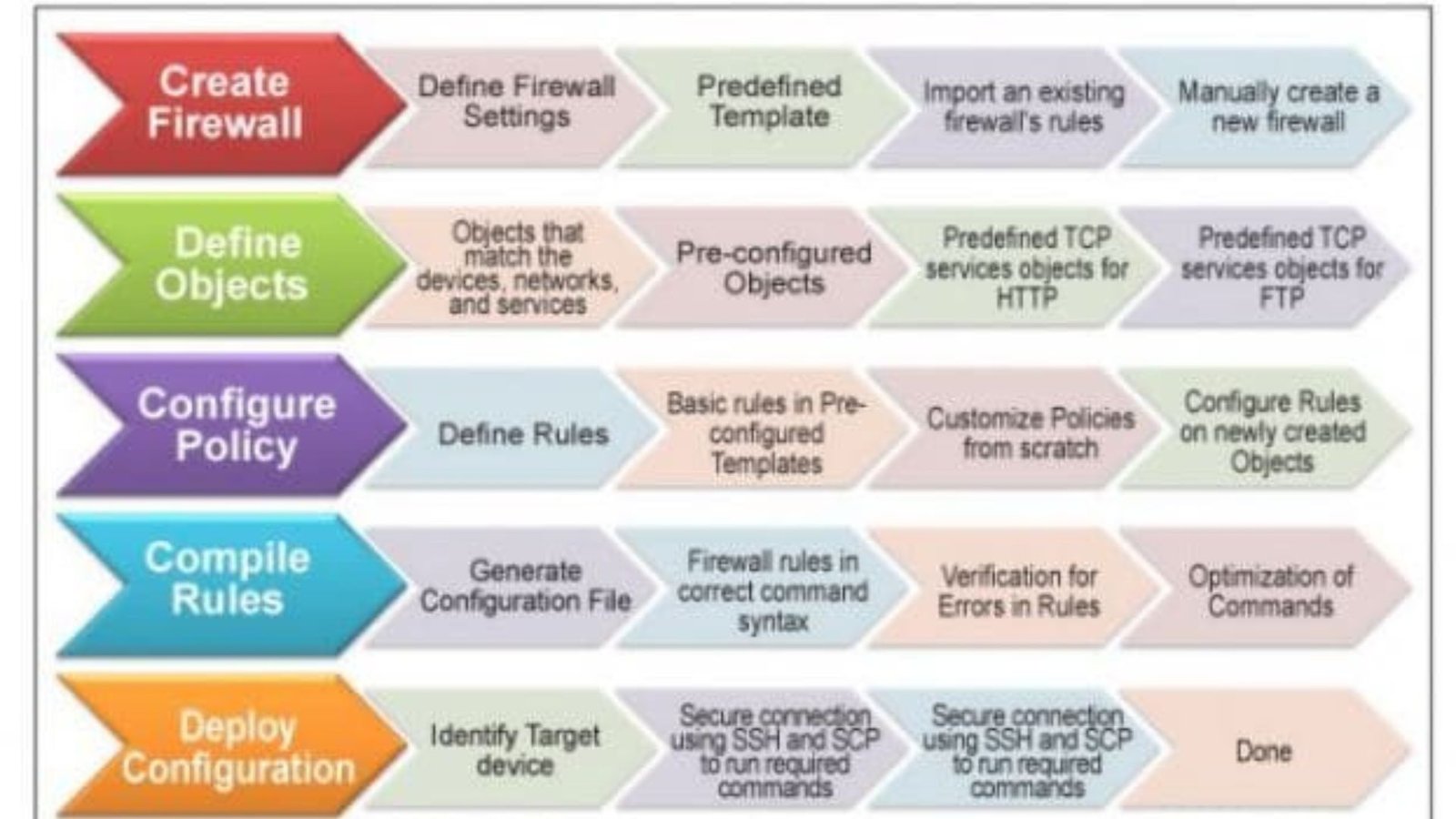Firewalls are essential for protecting networks by filtering incoming and outgoing traffic. They block harmful data and allow legitimate communication to pass through. Firewalls have become a critical defense tool in securing personal and corporate networks from cyber threats. But what exactly are firewalls, and how do they function to safeguard your digital environment?

What Is a Firewall?
Firewalls are security devices, either hardware or software, designed to monitor and control network traffic based on predetermined rules. By acting as a barrier between your internal network and external sources, they protect your system from unauthorized access, malware, and cyberattacks. The primary goal of a firewall is to ensure that only trusted data and users can access your network.
When data flows into your network, the firewall inspects the incoming packets and compares them against security rules. If the data aligns with trusted sources and follows set guidelines, the firewall allows it to proceed. If the data seems suspicious or harmful, the firewall blocks it, safeguarding your network.
Types of Firewalls
There are several types of firewalls available, each offering different levels of security and features. These firewalls range from basic packet filtering to advanced next-generation firewalls (NGFW) with more sophisticated threat detection.
- Packet-filtering firewalls inspect individual packets of data and compare them against predetermined rules. They are simple but effective for blocking unauthorized data based on IP addresses or protocols.
- Stateful inspection firewalls take things further by monitoring the state of active connections. They provide greater control over incoming and outgoing traffic by considering the context of each communication, ensuring it adheres to trusted patterns.
- Next-generation firewalls (NGFW) combine traditional firewall features with modern functionalities like deep packet inspection, threat intelligence, and intrusion detection. NGFWs are particularly effective at identifying and mitigating sophisticated cyber threats.
How Firewalls Work
Firewalls follow a simple process: they inspect data entering and exiting your network, checking for potential security threats. The basic functioning of firewalls revolves around packet filtering, stateful inspection, and deep packet analysis.
- Packet Filtering: Every piece of data that enters or leaves a network is broken down into smaller units called packets. Firewalls use packet filtering to analyze these packets. Based on rules set by administrators, the firewall either allows or denies packets to pass through.
- Stateful Inspection: Unlike basic packet filtering, stateful inspection keeps track of all active connections and ensures that only legitimate data flows through established connections. This adds an extra layer of security by monitoring ongoing traffic patterns.
- Deep Packet Inspection (DPI): This advanced feature looks beyond packet headers and inspects the content within packets. DPI allows firewalls to identify malware, spam, or other harmful data embedded in legitimate-looking traffic.
Cybersecurity in the Age of Digital Entertainment
As more users engage with digital entertainment platforms, concerns around data privacy and transaction security are more critical than ever. Websites like the best Australian online casino have recognized the importance of strong cybersecurity infrastructure to protect user data and ensure encrypted payment processing.
These platforms often integrate multi-layer authentication and real-time monitoring to prevent fraud, setting an example for how online businesses — especially those in high-risk industries — can build trust through security-first design.
Importance of Firewalls in Network Security
Firewalls serve as a vital line of defense in securing both personal and business networks. They protect sensitive information from hackers, viruses, and other cyber threats. Without a firewall, your network is vulnerable to unauthorized access, data breaches, and malware infections.
One key benefit of firewalls is their ability to block unwanted traffic. Whether it’s an external hacker trying to break into your system or internal employees misusing network resources, firewalls monitor and control the flow of data. In doing so, they prevent cyberattacks and minimize data loss.
Another major role firewalls play is in enforcing security policies. Businesses often establish guidelines for data access and communication within their networks. Firewalls ensure compliance by blocking any activity that violates these policies. This is crucial for preventing data leaks and maintaining confidentiality.
Firewall Configuration
Configuring firewalls properly is crucial for ensuring optimal protection. It involves setting security rules based on the specific needs of your network. For instance, administrators may allow certain types of traffic (like web browsing) while blocking others (such as file sharing) to protect sensitive information.
Firewalls can also be configured to enforce traffic encryption, making it more difficult for cybercriminals to intercept data. This is particularly important for businesses handling customer data or financial transactions.
Next-generation firewalls (NGFWs) go a step further by integrating threat intelligence, which updates the firewall’s security rules in real time. This means the firewall can adapt to emerging threats and prevent attacks that traditional firewalls might miss.
Conclusion
Firewalls are indispensable for protecting networks from cyberattacks, ensuring only legitimate traffic enters or leaves your system. They work by filtering packets, inspecting active connections, and analyzing data content. Understanding how firewalls function can help individuals and businesses enhance their security measures. Whether it’s basic packet filtering or advanced next-generation firewalls, having the right firewall in place can prevent unauthorized access, data breaches, and network threats.










